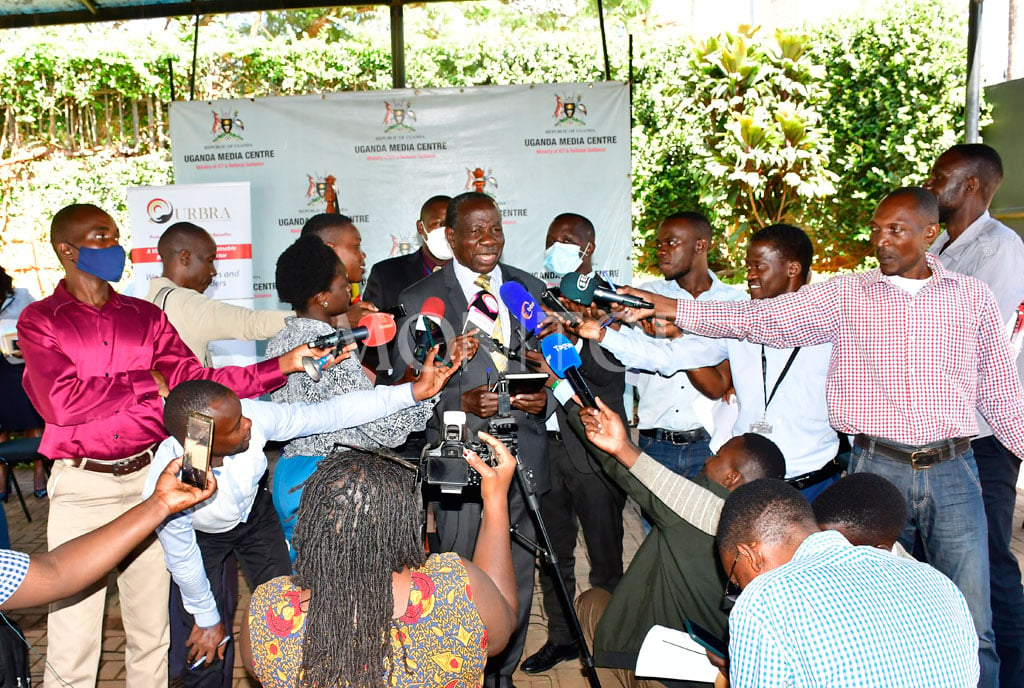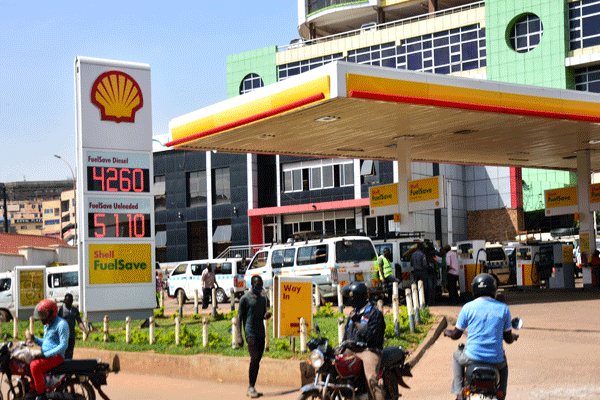Prime
Taxes can come later, Kasaija says in defence of exemptions

Finance Minister Matia Kasaijja responds to questions from journalists at the Uganda Media Centre in Kampala on May 10, 2022. PHOTO/STEPHEN OTAGE
What you need to know:
- Ugandans have also criticised government for instituting a tax exemption and incentive regime that benefits foreigners more than local investors.
Finance Minister Matia Kasiaja has said taxes and other incentives are aimed at supporting investors establish, after which, when their establishments are firm enough, can be taxed.
Speaking during a tour of Wagagai Mining in Busia District, Mr Kasaija said a number of people ignore the wider benefit of an investment to the economy and instead focus on the minor details of tax exemptions and incentives.
“The taxes can come later when the business has been established. What we are interested in is the money they bring in. We benefit in a number of ways,” he said, noting that government also uses incentives to win over investors, many of who are sometimes reluctant to invest in parts of Africa.
Mr Kasaija also noted that tax incentives play a big role in supporting employment given that many of the companies that are offered such exemptions turn out to be large scale employers.
A number of Ugandans have questioned the manner in which tax incentives are given with many saying the process is sometimes abused to benefit investors who do not qualify.
Over the years there has been debate on how incentivised investments perform, many of which continue to apply for new incentives after years of failing to firm up. A recent study by Oxfam revealed that Uganda lost upto Shs5 trillion in tax exemptions during the financial year 2019/20.
However, Mr Kasaija challenged the findings, arguing that whoever is opposed to tax exemptions should calculate how they benefit the economy.
“Have they calculated the benefits? Let them first calculate the benefits then they will tell me. I can assure you the benefits outweigh the incentives. That I can tell you,” he said, noting that incentives on different levels are available for both local and foreign investors.
Ugandans have also criticised government for instituting a tax exemption and incentive regime that benefits foreigners more than local investors.
Mr Alinda Kimoomi, the Uganda Free Zones Authority executive director, said Wagagai Mining, just like all firms under the free zones, is expected to achieve 80 percent value addition on exports.
“Tax incentives should be given when someone is adding value. The process of adding value leads to creation of jobs along the way,” he said.
Wagagai Mining, which is involved in gold mining, is one of the companies under the free trade zones expected to be agents of value addition.
ALSO READ: High prices: Govt turns its back on Ugandans
Mr Ashim Malai, the Wagagai vice general manager, said the gold mine is currently at the development stage with production expected by June.
“The gold mine will start production next year in June and we shall be producing one tonne of gold but will be running 5,000 tonnes of ore per day through the machines such that we can produce the final gold at 99.9 per cent,” Mr Malai said.




